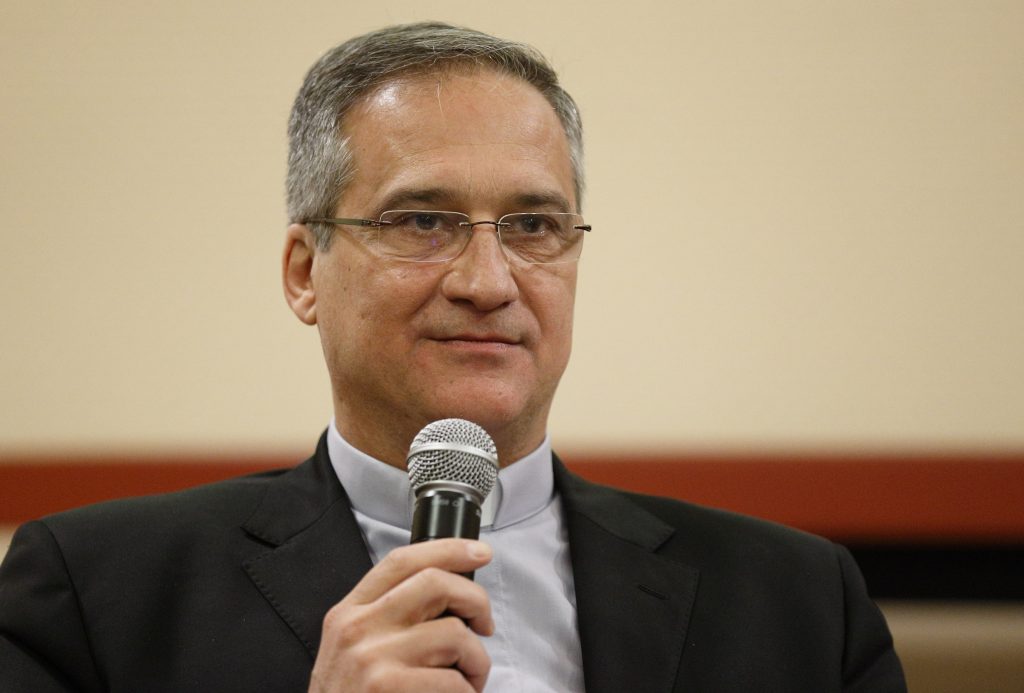ROME — Pope Francis famously spurns vacations. Indeed, a former papal chalet in Les Combes d’Introd in the Italian Alps, where both St. Pope John Paul II and Pope Emeritus Benedict XVI used to pass their Julys, is now the object of a contest launched by its Salesian owners to figure out a new use for the property, since Francis has made it clear he has no intention of beating the heat there himself.
The fact that much of the world slowed down during the dog days of summer, therefore, doesn’t mean Francis did.
In fact, the pontiff made several key moves over the summer that had the net effect of consolidating his team, giving new jobs to some and taking away positions from others, ensuring that, more and more, Francis has the people he wants in the places he wants them.
Now that we’re in back-to-school season, it’s worth taking stock of exactly how the deck has been shuffled.
In the biggest such development, on Sept. 1 Francis announced that a consistory will be held Oct. 5 to create 13 new cardinals, including 10 under the age of 80 and therefore eligible to vote for the next pope.
Notably, there were no new American cardinals on the list. It will be the pope’s sixth consistory, and to date he’s named just three Americans out of a total of 70 new cardinals.
The list does include several key papal allies, including Spanish Archbishop Miguel Angel Ayuso Guixot, president of the Pontifical Council for Interreligious Dialogue and the man who’s overseen Francis’ outreach to the Islamic world; Archbishop Matteo Zuppi of Bologna, a member of the Community of Sant’Egidio, widely seen as Francis’ favorite of the so-called “new movements” and a key Francis supporter within the powerful Italian bishops’ conference; and Canadian Father Michael Czerny, SJ, Francis’ right-hand man on matters regarding migrants and refugees.
Francis also named three “honorary” cardinals, meaning men over 80 who are being recognized for service to the Church, including British Archbishop Michael Fitzgerald, a former president of the Vatican’s Pontifical Council for Interreligious Dialogue.
Fitzgerald was removed from that post in 2006 by Benedict amid perceptions that his dovish approach to Islam was out of step post-9/11, so the red hat is widely seen as a rehabilitation.
The consistory announcement wasn’t the only example of the pope using personnel to advance policy.
In July, Francis issued a new set of statutes for the John Paul II Pontifical Theological Institute for Marriage and Family Sciences, long considered a primary Vatican beachhead for the Church’s most strongly pro-life thinkers and activists.
One effect was to eliminate the jobs of two longtime faculty members, Msgr. Livio Melina and Father Jose Noriega, both of whom are seen as holding fairly conservative views on marriage and family.
The moves are part of a broader overhaul of the institute under Francis, trying to steer it in a more pastoral, moderate direction, consistent with the thrust of his 2016 apostolic exhortation on the family, “Amoris Laetitia” (“The Joy of Love”).
Also in July, Francis named Italian layman Matteo Bruni as his new spokesman, replacing Alessandro Gisotti, a veteran of Vatican Radio who’d held the position on an interim basis since the resignation of American journalist Greg Burke in December 2018.
Bruni is a member of Sant’Egidio too, and his appointment, in tandem with earlier moves such as tapping veteran Italian journalist Andrea Tornielli to the new role of “editorial director,” means Francis now has a communications team composed entirely of his people.
In early August, Francis named a slate of new members to the Sacred Congregation for Eastern-Rite Catholic Churches, meaning the cardinals and other bishops who meet a few times every year to set policy for the department.
The list offered an x-ray of many of Francis’ biggest allies, including Gualtiero Bassetti of Perugia, president of the Italian bishops’ conference; Cardinal Luis Ladaria Ferrer, SJ, prefect of the Vatican’s Congregation for the Doctrine of the Faith; and Archbishop Michel Aupetit of Paris.
In a somewhat eyebrow-raising appointment, in late August Francis named Italian Msgr. Dario Edoardo Vigan√≤ to the new position of “vice chancellor” for both the Vatican’s Pontifical Academy for Science and the Pontifical Academy for Social Sciences, with special responsibility for communications.
Ironically, Viganò is the official who presided over one of the biggest communications debacles in recent Vatican memory in 2018, when it turned out he had cooked up a digitally altered photo of a letter from Benedict in an effort to highlight parts flattering to Francis and to leave out portions considered embarrassing.
However ham-handed the maneuver may have been, Vigan√≤ was trying to launch a book series exploring Francis’ theology intended to spread the pontiff’s vision, and Francis probably gave him points for loyalty.
The new appointment sends a “no man left behind” signal to Francis’ allies and may encourage them to be bolder, knowing the pope will have their backs even if things go wrong.
The first high-profile debut of this revised papal lineup may come in October, with a keenly anticipated Synod of Bishops on the Amazon.
It’s likely to be a bit testy, with some critics already warning that the synod is poised to transform the Church from a spiritual enterprise in the business of saving souls into a this-worldly NGO primarily concerned with poverty, climate change and indigenous rights.
Others believe the synod may prod the pope to modify the discipline of priestly celibacy, perhaps through approval of ordination for the “viri probati,” meaning tested married men in isolated rural communities — a move that would delight some and consternate others.
While we don’t yet know what will happen, one thing seems certain as we close the book on summer 2019. If things don’t go the pope’s way, it won’t be because he doesn’t have his team on the field.

